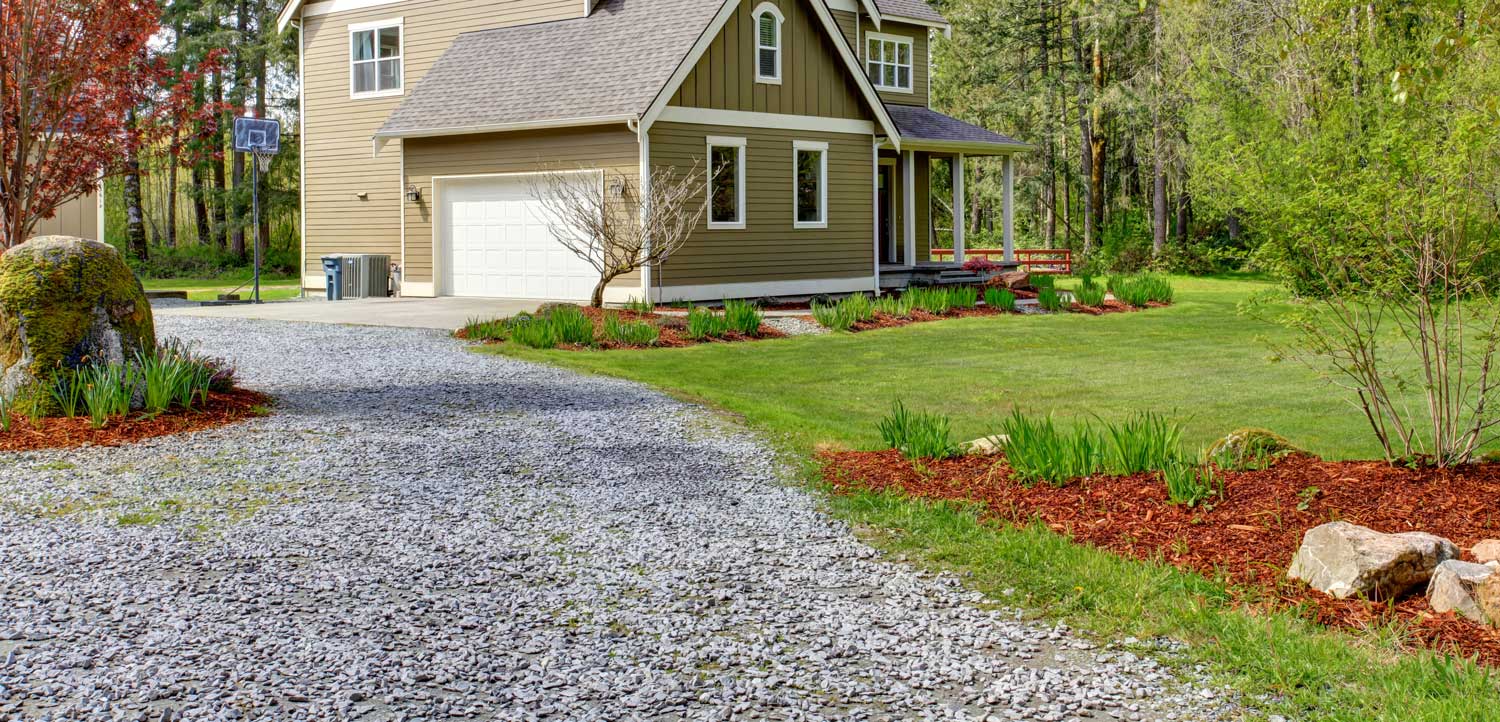A well-designed driveway isn’t just functional; it’s a defining feature of your home’s exterior. Gravel driveways, in particular, are a versatile, stylish, and cost-effective choice for many homeowners. Whether you’re remodeling a dated driveway or building one from scratch, understanding the ins and outs of gravel driveways is key to making the best decision.
This guide explores everything you need to know about gravel driveways, from benefits and costs to installation and maintenance. By the end, you’ll be equipped with the knowledge to determine if a gravel driveway is the best fit for your property.
Why Choose a Gravel Driveway?
Gravel driveways have stood the test of time as a reliable and budget-friendly solution for homeowners. Here’s why they remain a popular option.
1. Affordability
When compared to alternatives like asphalt or concrete, gravel driveways are one of the most cost-effective options. On average, the cost ranges from $1 to $3 per square foot, making it an attractive choice for homeowners seeking beauty and function without overspending.
Additionally, installation costs typically involve minimal labor since much of the work can be DIY-friendly with the proper guidance.
2. Versatility
Gravel is available in a wide variety of colors, sizes, and textures, allowing you to customize your driveway to suit the aesthetic of your home. From classic gray crushed stone to more decorative pea gravel, there’s an option for every style preference.
3. Durability and Drainage
Gravel is exceptionally durable when installed correctly. It naturally handles water well, providing great drainage and minimizing risks of flooding during heavy rainfall. Unlike concrete, it doesn’t crack or buckle with changing temperatures, making it ideal for climates with hot summers or freezing winters.
4. Easy Repairs
If a section of the driveway develops potholes or ruts, repairs are as simple as filling the problem area with new gravel. When compared to repairing asphalt or concrete, this is both quicker and more cost-efficient.
Gravel Driveway Costs and Factors to Consider
While gravel driveways are generally affordable, several factors influence the overall cost.
1. Materials
The type of gravel you choose greatly impacts costs. For instance, crushed stone and rock gravel are budget-friendly, while decorative options like marble chips or lava rock come with a steeper price.
Here’s a quick breakdown:
- Crushed Stone: Approx. $30 to $40 per ton
- Pea Gravel: Approx. $45 to $55 per ton
- Blue Stone (more decorative): Approx. $70+ per ton
2. Size of the Driveway
Gravel is sold by weight or volume, meaning the size of your driveway plays a significant role in total expenses. Be sure to calculate your driveway’s square footage (length × width) to estimate material needs.
3. Labor
While gravel driveways can often be a DIY project, hiring professionals ensures proper installation and minimizes long-term issues like uneven surfaces or poor drainage. Expect to pay anywhere from $40 to $70 an hour for contractors.
4. Additional Features
Certain features can enhance the functionality and aesthetics of a gravel driveway but may add to the overall cost:
- Edging materials like bricks or pavers for structure
- Weed barriers to reduce maintenance
- Grading to ensure a stable surface and prevent potholes
How to Install a Gravel Driveway
Installing a gravel driveway involves several steps. While it’s possible to DIY, professional contractors can streamline the process. Here’s a step-by-step overview of what’s involved.
1. Planning and Measuring
Start by outlining the dimensions of your driveway. Mark the edges and clear any existing vegetation, rocks, or debris in the area. Decide on the type of gravel you’ll use and ensure it complements the surrounding landscape.
2. Preparing the Base
- Excavate the marked area to about 4–8 inches deep. This removes loose soil and creates a stable foundation.
- Spread a weed barrier or landscape fabric over the ground to prevent unwanted plant growth beneath the gravel.
3. Adding the Layers
A gravel driveway is typically built in layers for maximum stability:
- Base Layer: Coarser gravel, such as crushed stone, acts as the foundation for stability and drainage.
- Middle Layer: Medium-sized gravel to even out and balance the surface.
- Top Layer: Decorative or finer gravel for aesthetics and smoothness.
Compact each layer with a roller or tamper before adding the next one.
4. Installing Edges
Add edging along the driveway to keep the gravel contained and prevent it from spilling into adjacent areas. Popular options include stone pavers, wood planks, or metal borders.
5. Maintain and Refresh
Once installed, refresh the gravel layer every couple of years to maintain the driveway’s appearance and functionality.
Maintenance Tips for Gravel Driveways
Proper maintenance is crucial to keep a gravel driveway in great shape. Luckily, maintenance is minimal and inexpensive compared to other driveway types.
1. Regular Raking
Gravel tends to shift and form ruts with use. Regularly raking the surface will help redistribute small stones and maintain an even surface.
2. Replenish Gravel
Over time, driving and natural weathering may cause the gravel to thin out. Consider adding a new layer of gravel every 2–3 years to refresh the driveway’s look and function.
3. Address Drainage Issues
Ensure water flows away properly. If you notice drainage problems or pooling, adjust the grading or add additional gravel.
4. Clear Weeds
Even with a weed barrier, some pesky plants may find their way through the gravel. Use manual removal or an herbicide to tackle weeds before they spread.
Is a Gravel Driveway Right for You?
Gravel driveways offer a mix of function, style, and affordability that’s hard to beat. They’re particularly well-suited for homes with large spaces, sloped terrain, or a rural aesthetic.
However, consider factors like maintenance and wear over time. For instance, gravel may require more upkeep if you have heavy vehicles using the driveway regularly.
If cost-efficiency and customizable design are priorities for your property, a gravel driveway is an excellent investment in both form and function.
Enhance Your Driveway Today
A gravel driveway can instantly elevate your home’s curb appeal while offering the practical benefits of durability and affordability. Whether you’re ready to lay your first gravel driveway or enhance an existing one, these tips will help you get started.
Have questions or need expert advice? Contact your local professionals to ensure a smooth installation process and a stunning final result.

































